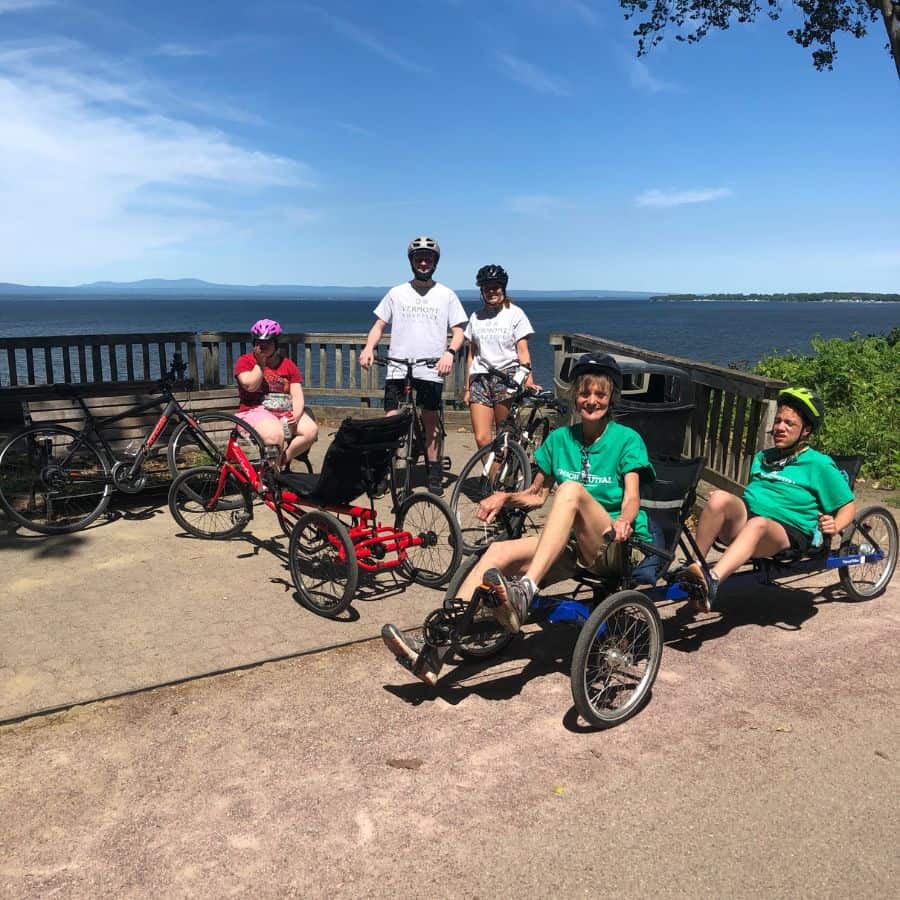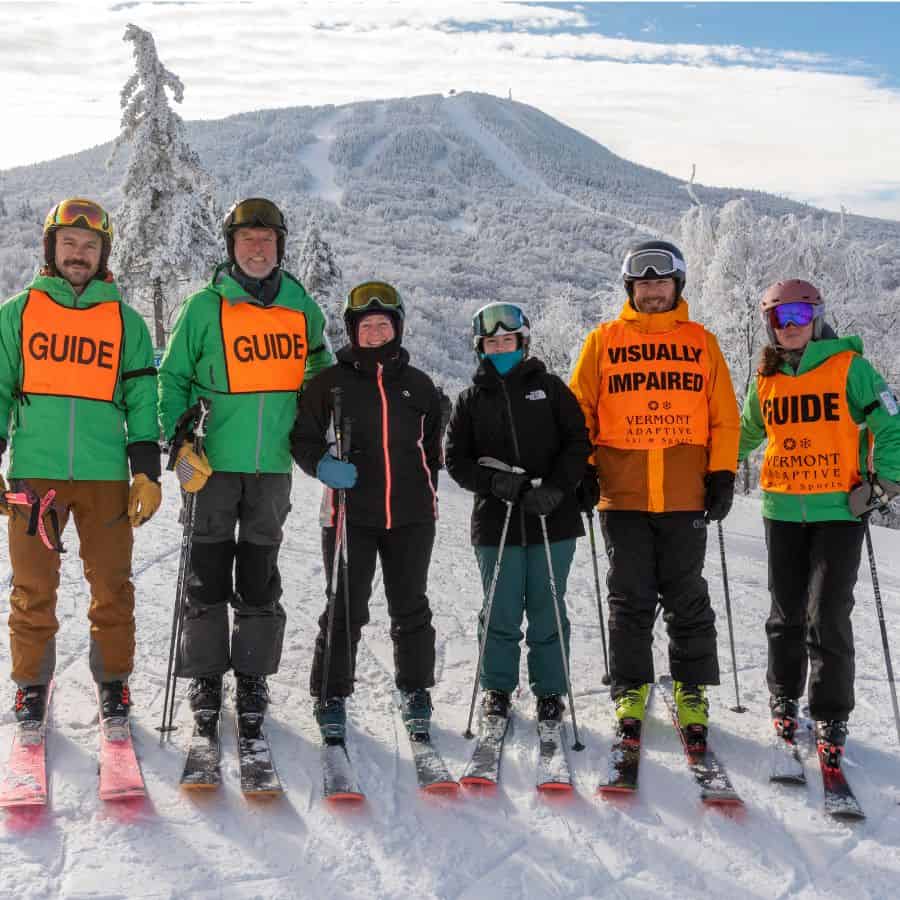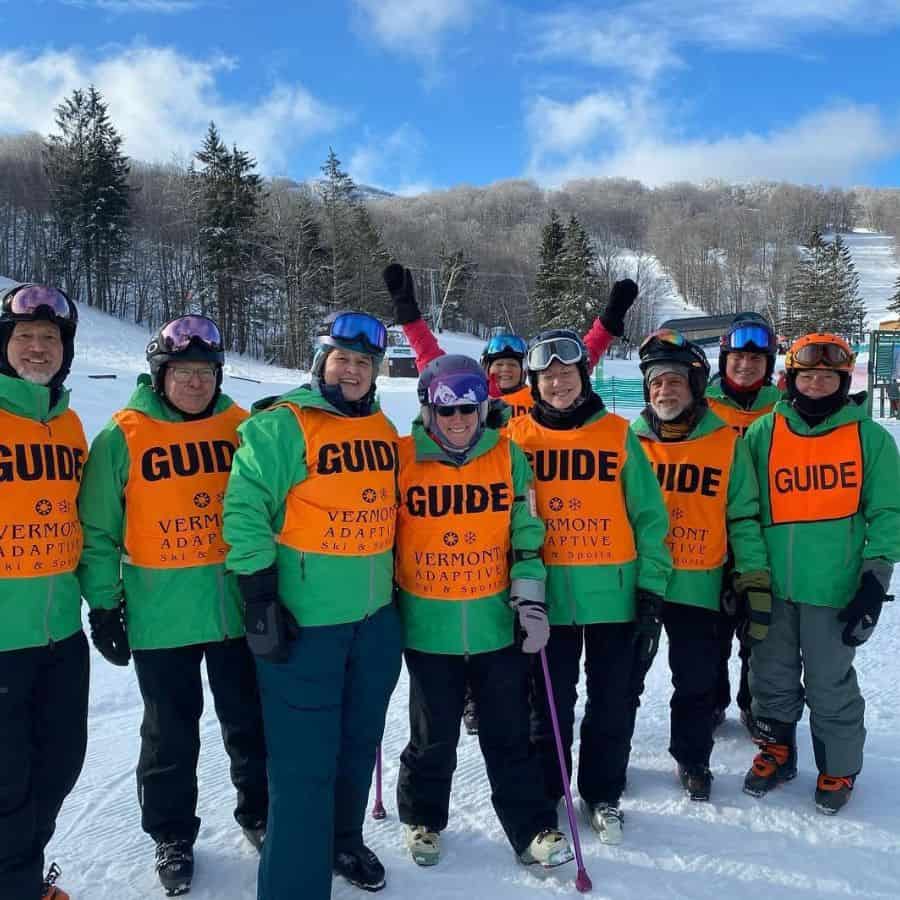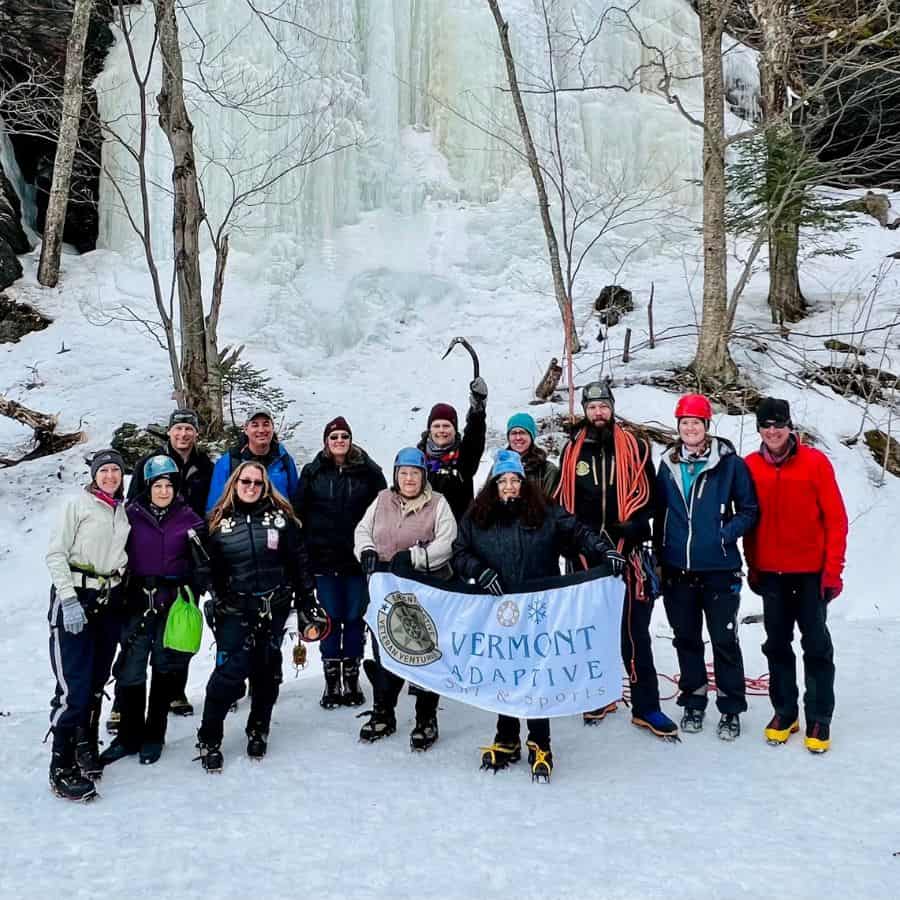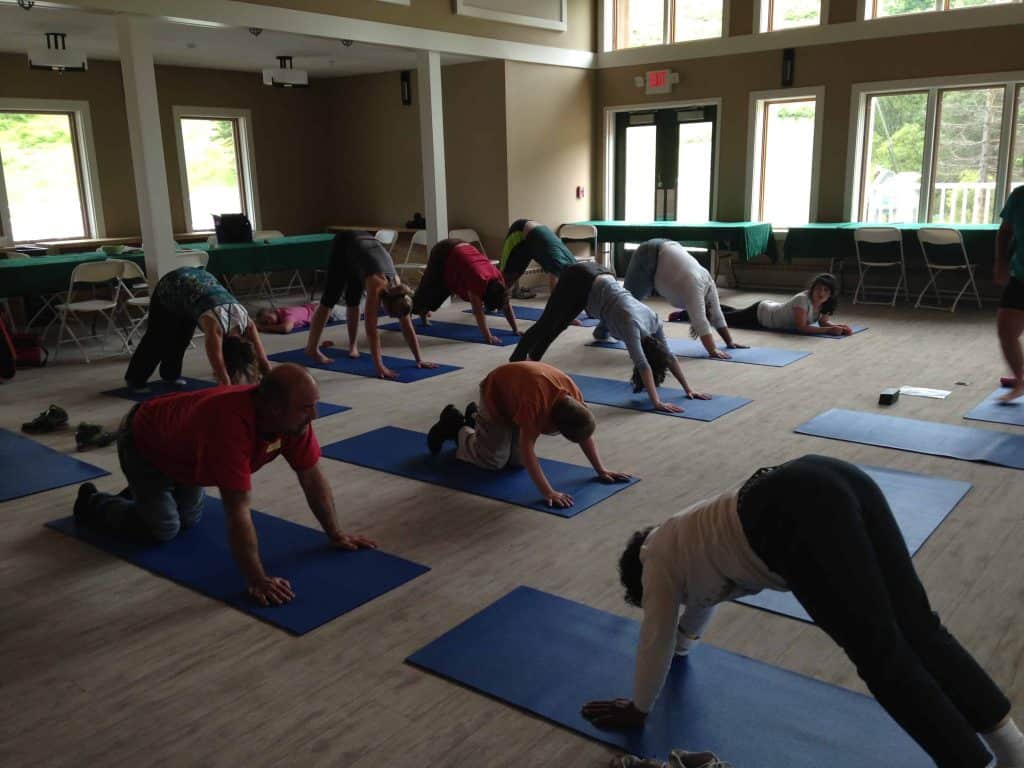By Hunter Hedenberg, guest blogger
Research shows that it takes a minimum of 21 days to change the way your brain thinks about habits. Vermont Adaptive’s C.O.R.E. Connections wellness program are for just three to five days depending on the season, but a fun, day camp structure like this one seems like the easiest way to start. And the goal is to take the habits learned in this time frame and make it a habit in every day life. The next two sessions being offered are Feb. 20-24 and March 27-31 at Pico Mountain.
C.O.R.E. Connections creates a framework for athletes and participants on how to challenge themselves in and out of the program. Over the course of the days, the athletes take part in activities such as biking, skiing, or kayaking, as well as wellness training such as yoga, indoor adaptive fitness classes, and mindfulness training in a group setting that promotes collaboration and teamwork.
The first day of the program is generally spent working on getting to know each other so the athletes can come together as one group. This is particularly important because in the next few days they are going to be challenged by each other as well as by the activities. What is challenging for one athlete may be old hat to another, so being able to work as a group and encourage each other is vital to the C.O.R.E. program. Tom Alcorn, senior program coordinator at Vermont Adaptive, said that over the course of one particular week, he saw an athlete who was absolutely terrified of water bond with his peers so much, that by the end of the program he went from being too scared to go to the beach, to being out on a lake canoeing with his friends.
Over the next few days, athletes snowshoe, indoor rock climb, bike, kayak, ski, snowboard, or hike depending on the season and the weather. Pairing those activities with the C.O.R.E. activities of meditating, yoga, mindful breathing, and team building creates a framework for the athletes to grow, challenge themselves, and ultimately take those activities back home with them at the end of the week.
Being able to spark a love and a passion for these types of adventures is the ultimate goal of the program. Alcorn talks about how he hopes that at the end of a week with C.O.R.E., he will see participants motivated enough, and with enough knowledge and independence to get out on their own without Vermont Adaptive, and to want to use that bike in the garage, or to hike that hill in the backyard, instead of spending days indoors. “Ultimately,” Alcorn said, “C.O.R.E. helps to level the playing field for many people who have never had a level playing field.”
We all know how hard it is to change your habits, however, and this program is no different. The biggest challenge at the end of the week is ensuring that the participants and their friends and family feel confident enough to take those experiences and run with them out on their own. If they aren’t there yet, however, Vermont Adaptive’s regular programs are always around!
No matter what, at the end of the week, as long as the participants have challenged themselves, learned some wellness techniques, and had a good time doing it, then the C.O.R.E. program was successful. Seeing a participant conquer something he once thought was impossible, or the smile participants have on their faces as they work with a team to accomplish something is invaluable. Click here for more information about the C.O.R.E. Connections program. Thanks to the Bowse Health Trust for supporting this program.


